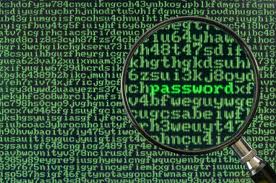

>Encryption and Quantum Computers
I have always liked encryption. It is a field where the objective is to protect data and keep people from reading it that should not have access to it. Below is a text of thoughts I have had about encryption and quantum computing. It is written with my knowledge of encryption and quantum computers but there still could be errors in the text.
A quantum computer allows bits to be set to 0 and 1 at the same time. Because of this ability, it can check a large amount of data at the same time. Currently, quantum computers are only up to 7 bits, however, work is progressing and more and more bits are being added.
Distributed.net took up a challenge from the RSA to crack a RC5-64 bit encrypted message. The idea is that instead of using 1 computer, use the idle time of a ton of computers around the world. To give an idea of how much computing power is being used, an AMD Thunderbird 900mhz computer can go thru and check 3 million RC5-64 bit keys in 1 second. Distributed.net, at the time of this writing, has a rate of 168 billion keys a second but it is still going to take another 2 years to go thru the other 1/2 of the keyspace. They are constantly increasing in speed of course so within 2 years the message should be cracked although they have been running for almost 4 years on it. 2^64 keys / 3 million keys a second would result in taking 194,847 years on an AMD Thunderbird 900. nuzle.pl
Now i'm going to start into my theory and questions to let you think on. An 8 bit quantum computer can check 256 different keys per check. If it runs anywhere near the speed of the AMD computer, then for every key in the AMD computer, it could check 256 keys. So 3 million x 256 = 768,000,000 keys that it can check in 1 second. 2^64 / 768 million keys a second means that it can find the correct key in 761 years. Of course that is a 256 times speed increase. You can continue to add bits on and get a lower and lower time. Assuming a 42 bit quantum computer can crunch each 42 bit block of keys as fast as the AMD computer can crunch 1 key (as a 42 bit quantum computer can check all 2^42 keys at the same time), it would only take about 1.3 seconds to go thru all the keys. This does not take into account speed increases in the computer industry either. Even a 32 bit quantum computer can go thru RC5-64 very quickly. Because of the speed of quantum computers and the ability to go thru encryption very quickly, then what type of encryption will be required to keep data secure even against a quantum computer? Every time a bit is added, the time to find the key is cut in half. The obvious answer is to use large keys with the encryption so the key takes alot more time to brute force. Encryption keys are not made to be left laying around so you either have to keep them well protected or remember them. a 64 bit RC5-64 key is 8 bytes in size. Of course some of those bytes you may not be able to type so you have to convert it to hex. This means that an 8 byte key means you have to remember 16 bytes if your going to memorize the key. If you used a sentence of some form as the key, how long do you think it would take a quantum computer to run thru all the words in the dictionary? A US keyboard only has 94 regular characters that can be typed. This is less than 1/2 of possible byte entries that a computer could select and use so a user password on a key isn't even secure. What type of limit is needed by the user to keep an encryption key secure long enough until the data that is encrypted doesn't need to be protected any more? There are secrets that are meant to stay secret and never be revealed also.